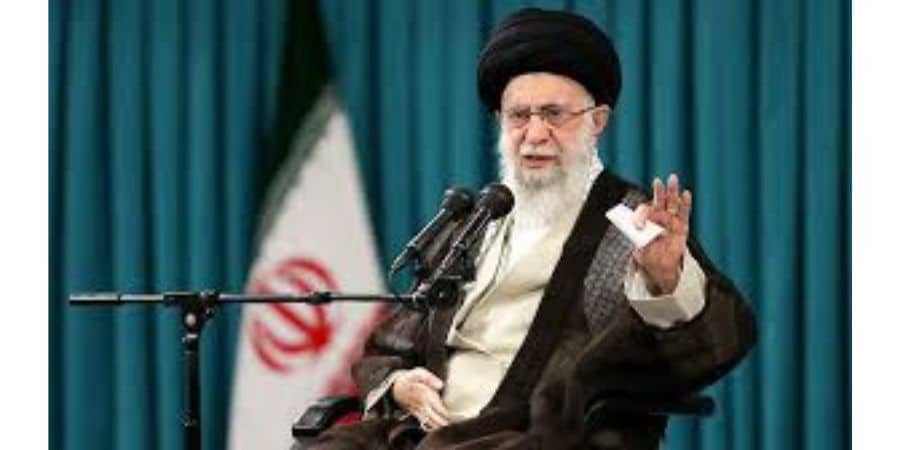TEHRAN: Iran’s Supreme Leader Ayatollah Ali Khamenei, taking an unusual step, has suggested the names of three clerics as candidates to succeed him in the event of his martyrdom.
The American newspaper New York Times reported that Iran’s Ayatollah Khamenei speaks to his commanders through a trusted advisor due to fears of being targeted and has stopped using electronic means of communication to make it difficult to reach them.
Report further claims that Ayatollah Khamenei, who has moved to an underground bunker, has also selected names for military command as replacements for his most important commanders in the event of their martyrdom.
The newspaper reported that Ayatollah Khamenei, taking an unusual step, has nominated three senior clerics as candidates to succeed him in the event of his martyrdom, and the report shows this move as a reflection of the extreme uncertainty in his and his 30-year rule.
The Supreme Leader has taken several extremely unusual steps to preserve Islamic democracy in Iran after the Israeli attacks.
The attacks launched by Israel a week ago are the most dangerous military campaign since the war with Iraq in the 1980s and have had a profound impact on Iran, and the damage caused by Israel’s one-week attacks is far greater than the losses caused during the 8 years of the Iraq war.
Iran, after initially suffering heavy losses, responded with a full-scale strike on Israel, hitting the Haifa oil refinery, military facilities and other strategic buildings, and partially damaging a hospital.
Iranian officials, speaking on condition of anonymity, said that senior Iranian officials were also quietly preparing to deal with the effects of war, while US President Donald Trump was considering direct involvement in the war.
Diplomatic sources and officials in Iran said that the top leadership could be in trouble, but that the Iranian leadership was currently fully operational despite the difficult situation and there was no sign of any political disagreement.
The officials said that Iran’s 86-year-old Supreme Leader Ayatollah Khamenei is aware that Israel or the US could try to assassinate him and would accept the assassination as martyrdom, and in view of this possibility, he has informed his nation’s Shura Council of Experts of the extraordinary decisions.
Iranian officials said that the name of Ayatollah Khamenei’s son, Mojtaba, had also been circulating as his successor, but he was not among the three names mentioned.
Vali Nasr, an expert on Iranian affairs and professor of international affairs at Johns Hopkins University, said that the first priority is the protection of the state and all this has been done through thought and practical demonstration.
ALSO READ: Erdogan backs Iran, calls Israel ‘greatest threat to peace’
The issue of the Supreme Leader’s succession has been extremely complex and difficult and is rarely discussed publicly, and is only discussed in speculation and rumors in political and religious circles.
The Supreme Leader has unfettered powers in Iran, serving as commander-in-chief of the Iranian armed forces, as well as the head of the judiciary, legislature and administration.





